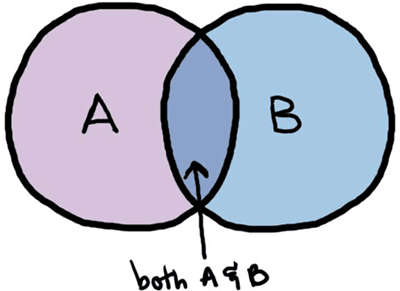In psychological research, a single dissociation is when a manipulation leaves one cognitive function (say, A) intact whilst severing another (say, B). This indicates the functions A and B are at least partially independent. A double dissociation is when there exists, in addition, a manipulation that does the reverse (i.e. leave B intact whilst severing A). On the Wikipedia page for dissociation in neuropsychology/cognitive neuroscience (I'm assuming the "manipulation" is a brain lesion now) it says that "establishing a single dissociation between two functions provides limited and potentially misleading information, whereas a double dissociation can conclusively demonstrate that the two functions are localized in different areas of the brain." This can't really be true, can it? Consider the following Venn diagram, where the (necessary) neural substrate of A and B are represented, including their intersection:

A double dissociation could consist of a manipulation in A \ B and another in B \ A. The functions would still be partially dependent, however, and not localized in completely different areas of the brain. So, in effect, the only thing a single dissociation proves is that the circles for A and B are not identical, and the only thing a double dissociation proves (in addition to the fact that they're not identical) is that one is not a subset of the other. Is that about right?